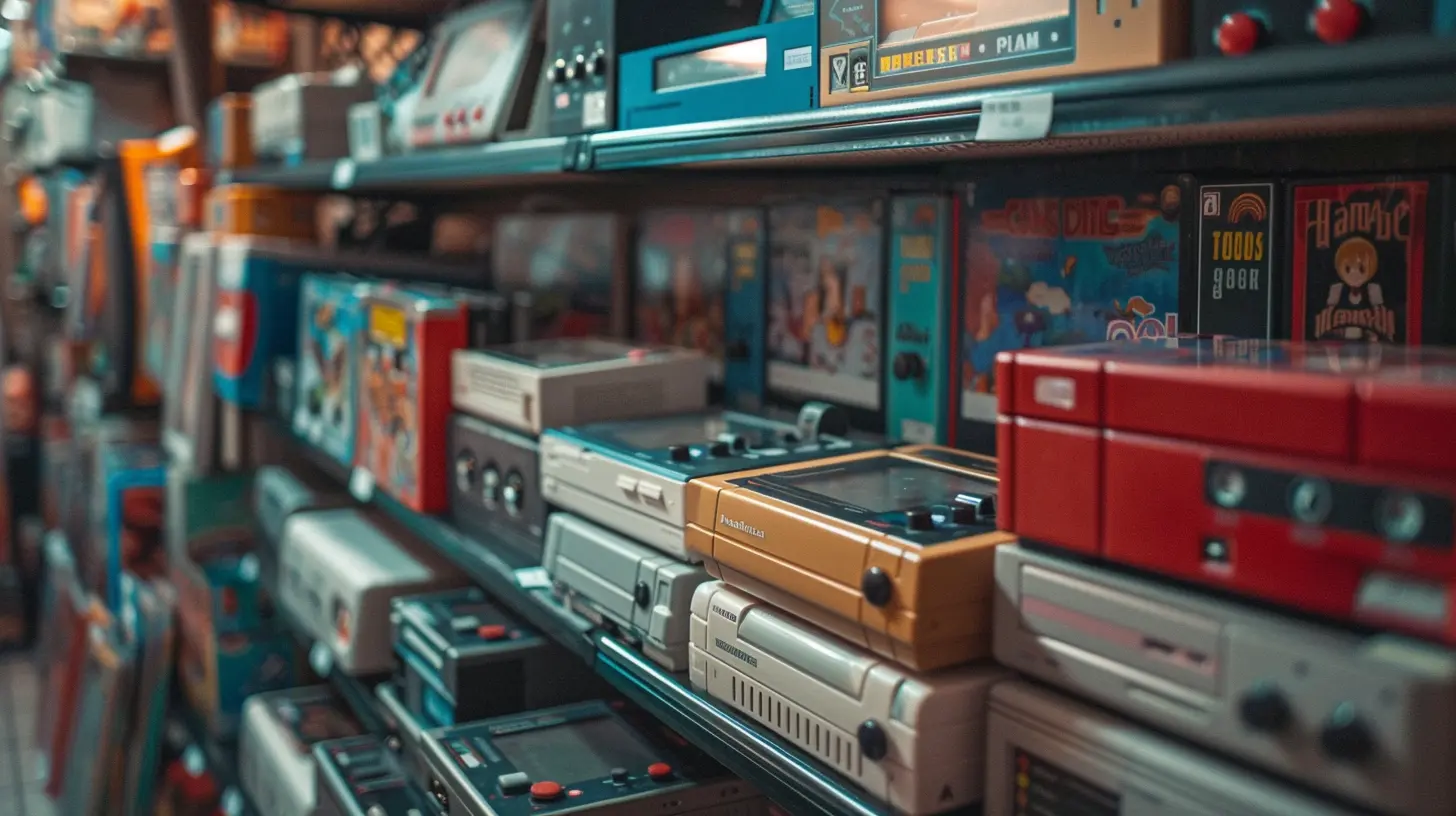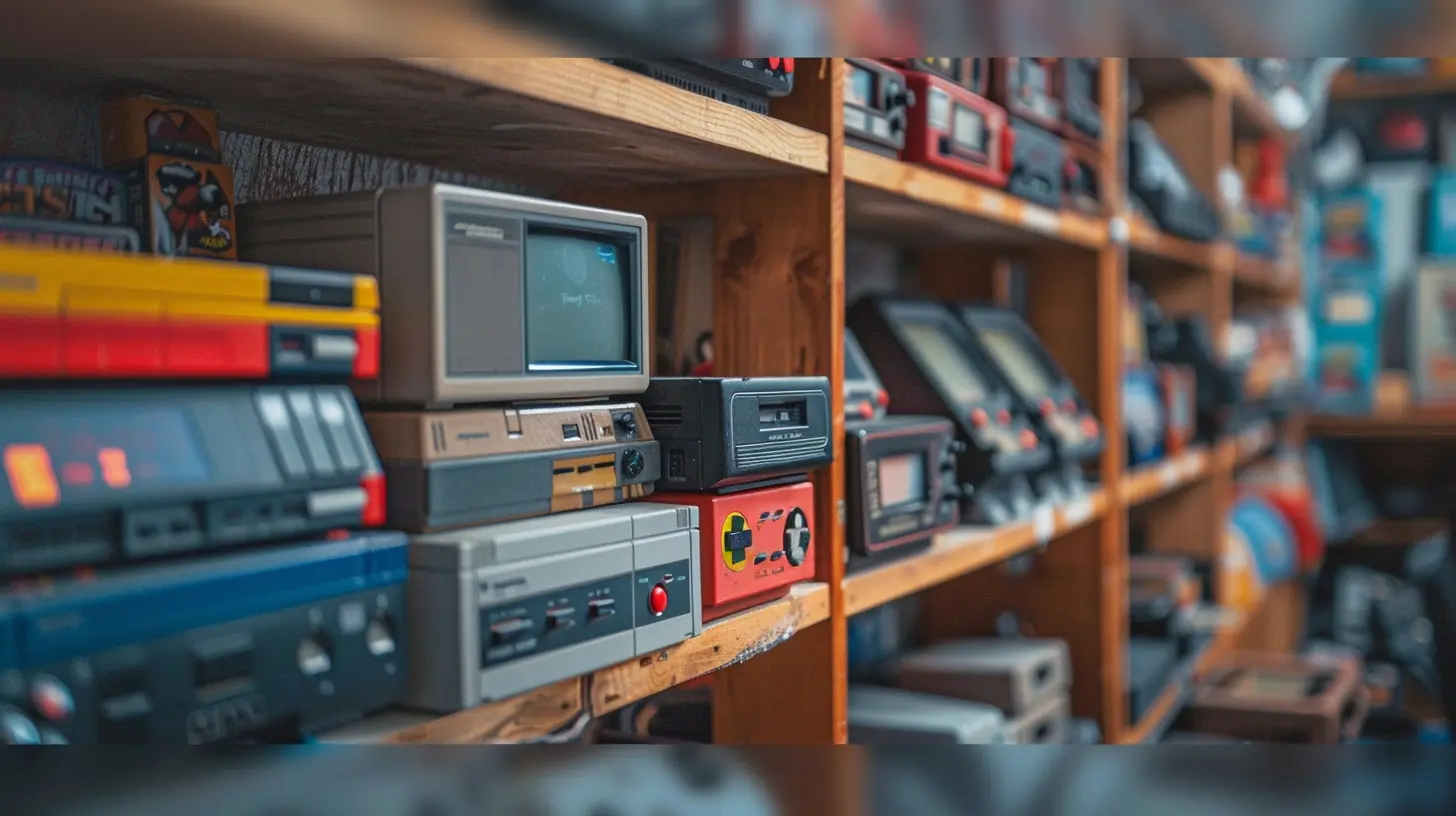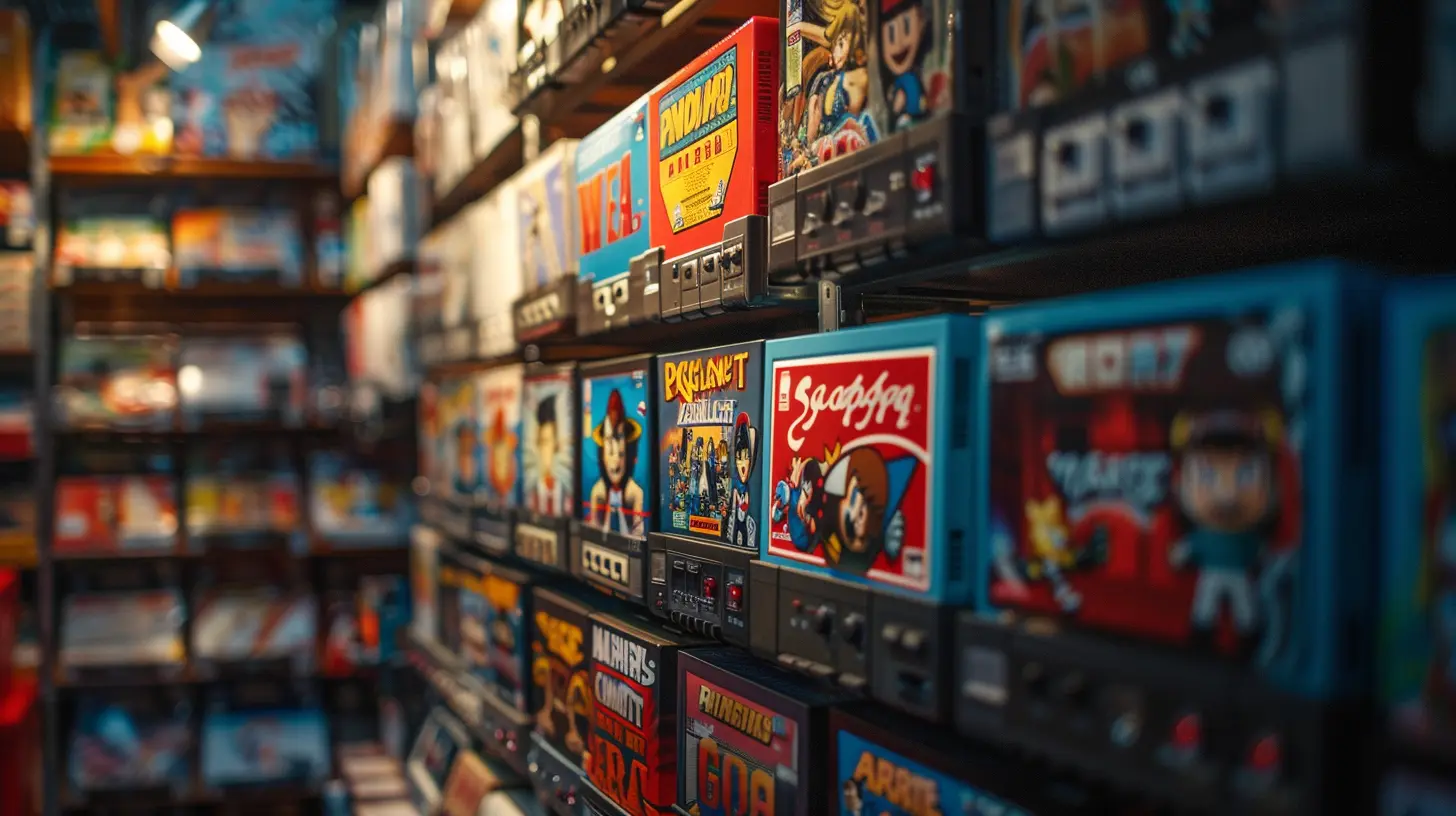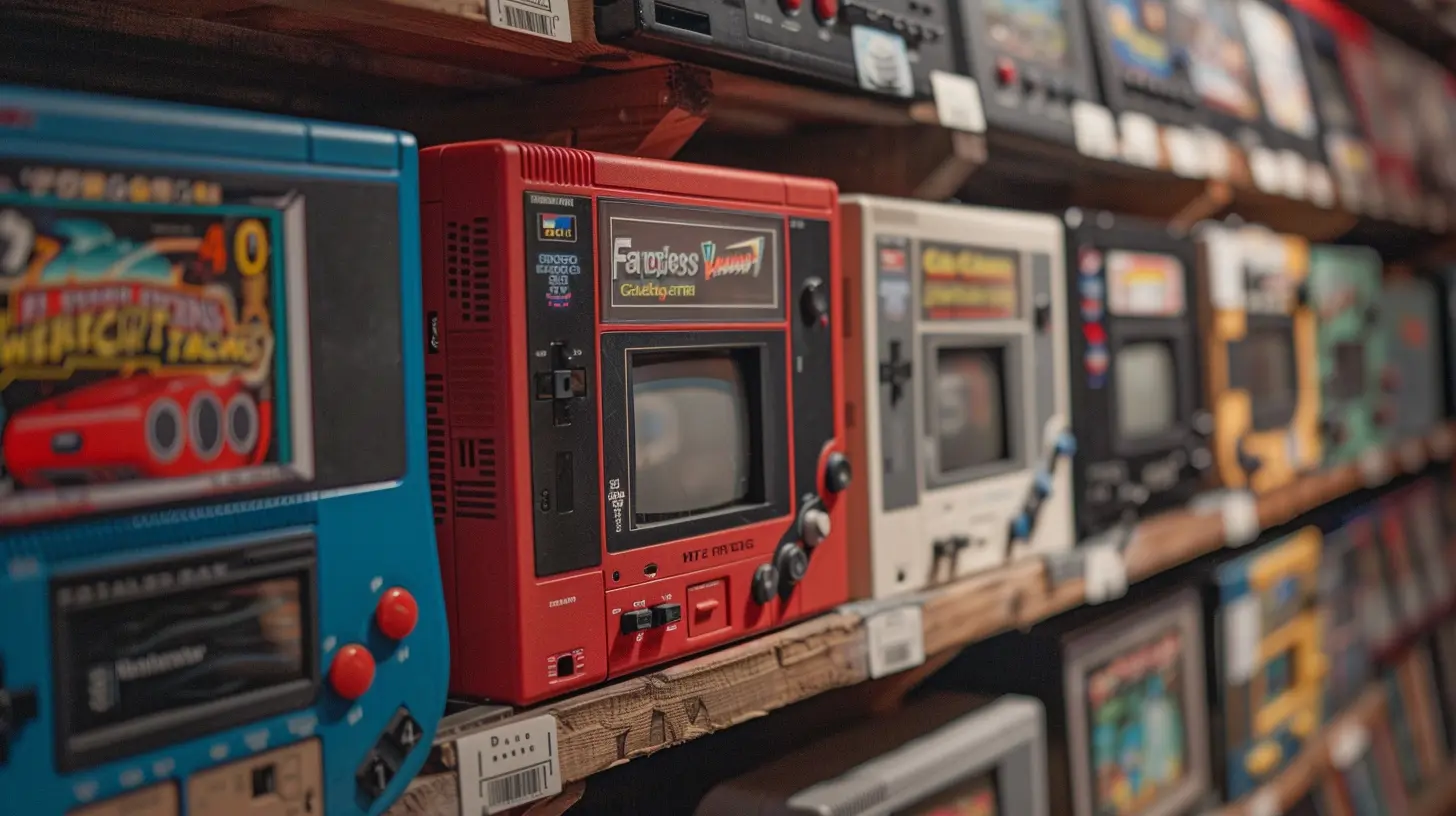Game Preservation: Can Classic Titles Be Saved for Future Generations?
30 December 2024
Ever stumbled across an old gaming console in your attic, dusted it off, and got hit with a wave of nostalgia as you reminisced about the hours you spent playing? Whether it was booting up the original Super Mario Bros. or slaying monsters in Diablo II, classic games hold a special place in our hearts. But here's the catch: those beloved titles, the ones that defined our childhoods and cemented gaming as a cultural phenomenon, are slowly disappearing.
Game preservation isn’t just some nerdy hobby for enthusiastic collectors. It’s an incredibly important mission—one that ensures generations to come can experience the magic of gaming's evolution. But with aging hardware, corporate decisions, and rapidly changing technology, the question remains: Can we truly save these classic titles for future generations?

Why Game Preservation Matters
At first glance, the idea of preserving video games might not seem as significant as, say, preserving ancient books or classical paintings. But think about it: video games are one of the defining art forms of the modern era. They’re a mix of storytelling, music, visual design, and technical wizardry—basically, interactive art. Preserving games isn’t just about saving a cartridge or a disc; it’s about preserving culture, history, and creativity.Imagine if future generations couldn’t read Shakespeare’s works or listen to The Beatles because no one preserved them. Sounds terrifying, right? Well, that’s exactly what’s happening to classic games. Without proper preservation, they risk fading into obscurity.
Video Games as Cultural History
It’s easy to dismiss video games as “just entertainment,” but they’re so much more than that! They reflect the technology, societal issues, and artistic styles of their times. Take The Oregon Trail, for example; it's not only a fun game but also a snapshot of a pivotal moment in American history. Or consider Metal Gear Solid, which pushes players to confront themes of war, ideology, and morality.If these titles disappear, we’re not just losing games—we’re losing stories, lessons, and memories tied to them. Future gamers deserve to experience the joy (and frustration) we felt when we defeated our first boss or solved our first puzzle.
The Challenges of Preserving Classic Games
So, why is preserving games so tricky? Turns out, there are a ton of obstacles standing in the way.1. Technology Is Always Evolving
Let’s face it: technology moves faster than we can keep up. Many classic games were designed for hardware that no longer exists or isn’t widely available anymore. Sure, you can emulate some games, but emulation isn’t perfect—and it’s legally murky in many cases.Remember floppy discs? Those were once cutting-edge, but now they’re practically fossils. The same thing is happening with gaming. As consoles like the NES, Sega Genesis, or PS2 become harder to find, the games tied to those systems are at risk of vanishing.
2. Copyright and Licensing Nightmares
Legal red tape is a massive hurdle. Unlike books or films, video games are made up of multiple components created by different people—developers, composers, voice actors, etc. These pieces are often protected by copyright and licensing agreements, and once those agreements expire, games can’t legally be re-released.For example, remember the legendary 1989 arcade game, GoldenEye 007? Fans begged for a revival for years, but licensing issues with the James Bond IP turned it into a logistical nightmare. The legal hoops developers have to jump through to preserve games can sometimes feel tougher than beating a Dark Souls boss.
3. Physical Deterioration
Physical copies of games, whether they’re cartridges, CDs, or floppy disks, degrade over time. Just like old films or vinyl records, they’re not immune to the effects of age, wear, and tear. As a result, even if someone has a rare copy of a classic game, there’s no guarantee it’ll work. And when it doesn’t, poof—the experience is gone.4. Digital Drifting
While digital distribution has made games more accessible in recent years, it’s also increased the risk of losing them forever. When game servers shut down or digital storefronts like the Nintendo eShop for older consoles go offline, gamers lose access to entire libraries of titles. If the game hasn’t been preserved elsewhere, it’s as good as gone.
Solutions: How Can We Save Classic Titles?
The challenges sound daunting, but all hope isn’t lost. There are ways we can safeguard gaming history for future generations.1. Emulation and ROMs
One of the most common methods for saving games is emulation. By creating software that mimics old hardware, we can still play classic games on modern systems. ROMs (read-only memory) are digital copies of games that can be used with these emulators.But remember when I mentioned legal issues before? Yeah, this is where that comes into play. While emulation is a godsend for preservation, it’s technically illegal unless you own the original copy of the game. The debate over whether emulation should be made legal for preservation purposes is ongoing.
2. Remasters and Ports
Increasingly, developers are opting to remaster classic games or port them to newer systems. This is a great way to introduce younger players to older titles while updating graphics, mechanics, or controls for modern audiences. Games like The Legend of Zelda: Link’s Awakening (2019) and Crash Bandicoot N. Sane Trilogy are excellent examples of how remasters can keep classics alive.The downside? Not all games receive this treatment, especially lesser-known ones. Popular titles might get their time in the spotlight again, but what about cult classics or indie gems?
3. Game Preservation Efforts
There are organizations dedicated to game preservation, like the Video Game History Foundation and Internet Archive. These groups work tirelessly to catalog, research, and save games from extinction. They’ve even started preserving gaming magazines and manuals—because, let’s be real, half the fun of old games was reading those quirky instruction booklets.Fans also play a massive role in preservation. Some communities have taken it upon themselves to archive games, patch old titles for modern systems, or even reverse-engineer broken games to make them playable again.
4. Cloud Gaming and Subscription Services
Services like Xbox Game Pass, PlayStation Plus, and Nintendo Switch Online are giving classic games a second life by offering them via streaming or subscription. While it isn’t a fix-all solution, it does mean more people can experience older games without shelling out for vintage hardware.
Why We Should All Care
Whether you're a hardcore retro gamer or someone who's barely touched a joystick, game preservation is something we should all care about. It’s not just about reliving childhood memories (though that's a huge plus). It's about preserving creativity, innovation, and history. It’s about making sure future generations can experience the magic of Chrono Trigger or the quirky charm of EarthBound, just like we did.Every game tells a story and represents a moment in time. Losing them would be like tearing pages out of the book of human culture. So, let’s do our part. Support remasters, advocate for emulation reform, or just appreciate the work preservationists are doing behind the scenes. The next time you see an old console or game on a shelf, remember: they’re not just relics—they’re treasures worth protecting.
Conclusion
Game preservation isn’t just a cause; it’s a responsibility. As technology continues to change and evolve, we must find ways to safeguard the classics that paved the way for today’s industry. From the legal battles around emulation to the efforts of devoted organizations, there's hope. But it takes all of us—gamers, developers, and companies alike—to ensure these digital masterpieces don't vanish into the void.So, can classic titles be saved for future generations? The answer isn’t simple, but one thing’s for sure: we owe it to ourselves (and the gamers of tomorrow) to try.
all images in this post were generated using AI tools
Category:
Gaming NewsAuthor:

Madeleine McCaffrey
Discussion
rate this article
13 comments
Rylan Mendez
Great insights on game preservation! It's crucial to ensure these classic titles remain accessible for future players.
February 5, 2025 at 5:32 PM

Madeleine McCaffrey
Thank you! It's essential to protect our gaming heritage and ensure future players experience these classics.
Kairoth Duffy
Absolutely! Preserving classic games ensures their magic continues to inspire future gamers. Let's save them!
February 1, 2025 at 3:36 PM

Madeleine McCaffrey
I completely agree! Preserving classic games is vital for keeping their legacy alive and inspiring future generations of gamers. Let's advocate for their protection!
Tank Diaz
Fascinating topic! It’s essential to explore innovative ways to preserve classic games. With technology evolving, I wonder what unique methods we might use to keep these beloved titles accessible for future generations. Excited to see potential solutions!
January 26, 2025 at 4:00 PM

Madeleine McCaffrey
Thank you! I'm glad you find the topic intriguing. Preserving classic games is indeed crucial, and exploring innovative methods will be key to ensuring their accessibility for future generations. Excited for the discussion!
Vance Montgomery
Great article! Game preservation is crucial for keeping our gaming history alive. It’s inspiring to see the efforts being made to save classic titles for future generations. Let’s keep the conversation going and ensure that these beloved games continue to bring joy to players everywhere!
January 22, 2025 at 4:19 PM

Madeleine McCaffrey
Thank you! I completely agree—game preservation is vital for honoring our gaming heritage and ensuring future generations can enjoy these classics. Let's keep advocating for it!
Karina Nelson
Oh sure, let’s just toss those classic games into a time capsule labeled “Future Generations” and hope they magically decode the graphics and gameplay. Easy peasy, right?
January 19, 2025 at 5:19 AM

Madeleine McCaffrey
While preserving classic games is challenging, it’s crucial for keeping gaming history alive and accessible. With the right efforts, future generations can appreciate these timeless works.
Charlotte Burton
Classic games are like vintage wine; they only get better with age. If we can't save them, we might as well toss our consoles in the dumpster! Stop whining about space and start archiving—future gamers deserve to experience these legends, don’t they?
January 16, 2025 at 3:39 AM

Madeleine McCaffrey
Absolutely! Preserving classic games is essential for future generations to enjoy and learn from our gaming history—let's ensure these legends aren't lost!
Callie Hunter
Sure, let’s just toss all our old cartridges in a time capsule—what could possibly go wrong?
January 11, 2025 at 5:55 PM

Madeleine McCaffrey
While a time capsule is a fun idea, proper preservation requires more than just storage; it needs care and consideration to ensure these classics remain playable and accessible for future generations.
Mitchell McGlynn
Save the classics? Absolutely! Otherwise, future gamers will miss out—totally tragic!
January 6, 2025 at 4:55 AM

Madeleine McCaffrey
I completely agree! Preserving classic games is essential for keeping the rich history of gaming alive and accessible for future generations.
Naya McCarty
Game preservation is crucial for future generations to experience gaming history. We must prioritize archiving classic titles before they fade away, ensuring their cultural significance endures.
January 2, 2025 at 4:00 AM

Madeleine McCaffrey
Absolutely! Game preservation is essential for maintaining our cultural heritage and allowing future generations to appreciate the evolution of gaming. Let’s prioritize archiving these classics!
Eden Brown
What a fascinating read! It's so important to preserve classic games; they hold stories and experiences that future generations deserve!
January 1, 2025 at 5:55 AM

Madeleine McCaffrey
Thank you! I completely agree—preserving classic games is vital for maintaining cultural history and providing future generations with valuable experiences.
Desiree McTier
Game preservation is crucial; classic titles deserve to be experienced by future generations. Let's act now!
December 31, 2024 at 4:17 PM

Madeleine McCaffrey
Absolutely! Preserving classic titles is essential to maintain gaming history and culture for future generations. We must take action now to ensure these gems are not lost.
Emery Alexander
This article highlights a crucial issue in gaming. Preserving classic titles is vital not only for nostalgia but also for cultural heritage. With evolving technology, we must advocate for proper archiving and emulation practices to ensure future generations can experience and learn from these iconic games. Great read!
December 30, 2024 at 4:25 PM

Madeleine McCaffrey
Thank you for your thoughtful comment! I completely agree—preserving classic games is essential for both nostalgia and cultural heritage. Advocating for proper archiving is vital to ensure future generations can appreciate these iconic titles.
Drake Newton
Essential to preserve gaming history.
December 30, 2024 at 4:40 AM

Madeleine McCaffrey
Absolutely! Preserving gaming history ensures that future generations can appreciate and learn from classic titles.
MORE POSTS

The Early Years of Video Game Consoles: From Odyssey to Atari

The Influence of Horror Games in the Early 2000s

How E-Sports Players Train Like Traditional Athletes

Best Games for Teens to Play With Friends

How to Build Emotionally Driven Narratives in RPGs

The Impact of Voice Acting on Game Immersion

In-Game Purchases: Microtransactions vs. Macrotransactions Explained
Legendary Relics vs. Modern Tech: How Sci-Fi Games Handle Iconic Gear
Behind the Epic Sparkle: The Development of Iconic Legendary Items